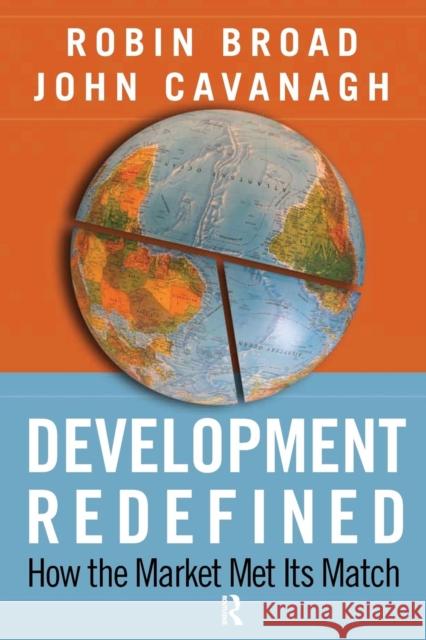Development Redefined: How the Market Met Its Match » książka
Development Redefined: How the Market Met Its Match
ISBN-13: 9781594515231 / Angielski / Miękka / 2008 / 160 str.
Development Redefined: How the Market Met Its Match
ISBN-13: 9781594515231 / Angielski / Miękka / 2008 / 160 str.
(netto: 195,46 VAT: 5%)
Najniższa cena z 30 dni: 186,33
ok. 16-18 dni roboczych.
Darmowa dostawa!
Rejecting the "flat worldism" of the globalists as well as the peaks and valleys of trade and aid policies over the years, Robin Broad and John Cavanagh guide us through the raging debate over the best route to development for the poorer nations of Africa, Asia, and Latin America. This book takes readers on a journey through the rise and fall of the one-size-fits-all model of development that richer nations began imposing on poorer ones three decades ago. That model-called the "Washington Consensus" by its backers and "neoliberalism" or "market fundamentalism" by its critics-placed enormous power in markets to solve the problems of the poor. The authors have stood at the epicenter of these debates from their perches in the United Nations, the U.S. government, academia, and civil society. They guide us back in time to understand why the Washington Consensus dominated for so long, and how it devastated workers, the environment, and the poor. At the same time, they chart the rise of an "alter-globalization" movement of those adversely affected by market fundamentalism. Today, this movement is putting alternatives into action across the globe, and what constitutes development is being redefined. As the authors present this dramatic confrontation of paradigms, they bring into question the entire conventional notion of "development," and offer readers a new lens through which to view the way forward for poorer nations and poorer people. This brief history of development connects an arcane world with contemporary forces of globalization, environmental degradation, and the violation of perhaps the essential human right: to be considered individually, equally, in an economically viable world and way.











